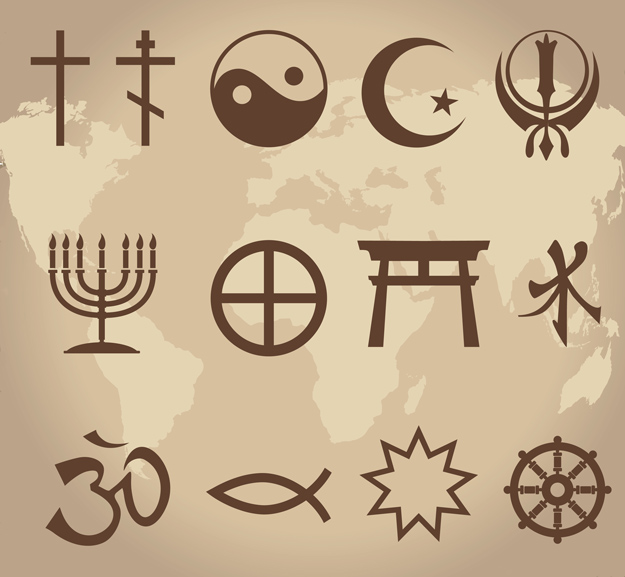The views expressed in our content reflect individual perspectives and do not represent the authoritative views of the Baha'i Faith.
In His writings Baha’u’llah offers an entirely new way of understanding how God intervenes in human history through a succession of prophets.
He calls this concept “progressive Revelation,” which is the process whereby God has sent Messengers to reveal His Word in every age. All of the prophets and messengers are part of a process whose ultimate goal is the unification and salvation of humanity. They all teach the same fundamental spiritual truths, but they also reveal new laws and teachings that are appropriate to the time in which they appear. For this reason  there are differences in what God’s messengers have revealed. But these differences have nothing to do with the relative qualities of the messengers, for they all possess the same knowledge, power, and capacities.
there are differences in what God’s messengers have revealed. But these differences have nothing to do with the relative qualities of the messengers, for they all possess the same knowledge, power, and capacities.
Baha’u’llah specifically mentioned certain manifestations of God who have appeared to humanity. Among them: Abraham, Moses, Christ, and Muhammad. More recently, the Bab and Baha’u’llah appeared. Baha’is also accept Zoroaster, Buddha, and Krishna as manifestations of God. Baha’u’llah assures us that God has sent countless messengers throughout the ages, even before recorded history:
Know thou that the absence of any reference to them is no proof that they did not actually exist. That no records concerning them are now available should be attributed to their extreme remoteness, as well as to the vast changes which the earth hath undergone since their time. – Gleanings from the Writings of Baha’u’llah, p. 172.
Some people believe that not all of these messengers could have been sent by God, because they taught contradictory things. Baha’u’llah ascribes such apparent differences chiefly to misunderstandings on the part of their followers. Another reason for the differences is that the religious truths the prophets taught are relative, for each subsequent messenger sheds new light on spiritual reality and revises particular laws according to the needs of the time. Baha’u’llah wrote:
There can be no doubt whatever that the peoples of the world, of whatever race or religion, derive their inspiration from one heavenly Source, and are the subjects of one God. The difference between the ordinances under which they abide should be attributed to the varying requirements and exigencies of the age in which they were revealed. All of them, except a few which are the outcome of human perversity, were ordained of God, and are a reflection of His Will and Purpose. – ibid, p. 217.
The Baha’i writings liken the appearance of the messengers of God to the annual cycle of the seasons. The appearance of the prophet is, like the springtime, a season of renewal and rebirth. The spiritual power released by the prophet’s appearance to humanity is like the sun’s effect in the natural world, creating a fresh impetus for growth. Gradually the sun moves to its zenith, and the world of nature matures in full summer splendor. Then there is the gradual decline of fall, which is followed by the latency of winter, but spring eventually returns, and the cycle begins anew. Similarly, each of the messengers of God infuses the human world with fresh spiritual capacities. After a while His teachings begin to show their full effects in the world, usually long after his own lifetime. Then the initial freshness and energy gradually begin to fade, and the time comes for another Messenger. If we examine the lives of Moses, Christ, and Muhammad, we can see this principle at work. Each brought a renewed spiritual force into the world, and in each case their teachings became the basis for fundamental advancements in human religious and social life. It is important to state here that the need for spiritual renewal does not imply that the messengers themselves are no longer relevant, nor does it imply that their teachings are no longer true. The Baha’i teachings describe the successive appearances of the messengers of God as simply part of an ongoing process for humanity’s education.
















Comments
Sign in or create an account
Continue with Googleor